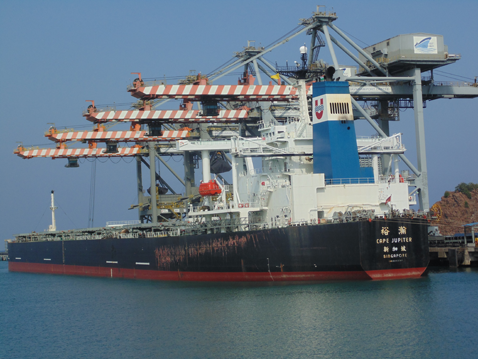
A report by the Comptroller Auditor General (CAG) recently tabled in Parliament made a scathing observation about the failure of the PPP model in the maritime sector. The report observed that only 33 per cent of new capacity added to major ports came from PPP projects thereby defeating the purpose of the model. “The PPP projects could contribute only 33 per cent to the total capacity of major ports as it has suffered various implementation issues,” the report said.
Since the advent of PPP and up to March 2014, the government of India sanctioned 91 PPP projects proposing a total capacity of 751.71 million tpa (see table) to major ports. Capacity of 264.69 million tpa was achieved from 35 projects completed by March 2014. Another 27 projects with capacity addition of 221.94 million tpa were under construction while 27 others with proposed capacity addition 257.97 million tpa were in the bidding stages. Two projects aggregating 6.11 million tpa were dropped.
The CAG report also quotes a number of instances where policies relating to PPP were found to be weak. In one such case, the grantor of concession, JNPT, entered into an agreement with Nhava Sheva International Container Terminal (NSICT) in July 1997 wherein royalty was fixed on per TEU basis which progressively increased from Rs.47 per TEU to Rs.2,670 per TEU in 2014-15. Due to high royalty rate, the project became progressively less remunerative to the operator and even threatened the viability of the project. It is only now, after 18 years of operation, that JNPT proposes to migrate from royalty to revenue sharing mode. NSICT, owned by DP World, represents India’s first private container terminal.
Meanwhile, under the National Maritime Development Programme (NMDP), 276 projects to be taken up for implementation in the period April 1, 2005 to March 31, 2012 were identified, it was informed in Parliament. These projects are namely construction and upgrade of berths, deepening of channels, rail and road connectivity, equipment modernization schemes and other related schemes for creation of backup facilities. Total investment involved under the Programme is Rs.1,00,339 crore at 2004-05 prices. Out of this, Rs.55,804 crore is for the port sector and the balance is for the shipping and inland water transport sectors.
Out of these 276 projects, 79 have been awarded under PPP mode of which 45 have been implemented while the remaining 34 are under implementation.
“The work of projects under implementation is at slow pace due to delay in fulfillment of condition precedents by the concessionaire, lack of response from prospective bidders, recession/slowdown in the world economy etc. Government of India has taken many steps to expedite the early completion of the project such as enhanced delegation of financial power to major ports, streamlining security clearance procedure for bidders in respect of PPP and dredging projects, revising guidelines issued by Tariff Authority for Major Ports (TAMP) to fix market determined rate etc,” Parliament was informed.











Good Information…